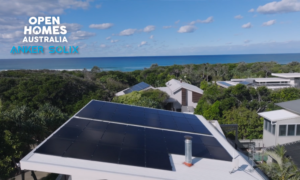The results of a survey just published by Australia’s Alternative Technology Association show that most Australians purcSolar Credits programhasing solar power systems primary motivation goes beyond electricity cost savings.
The survey found that 53% of respondents who had already installed solar power or solar hot water systems, did so in order to reduce their carbon footprint. 43% stated they wanted to increase renewable energy generation in Australia. Only 19% installed solar energy systems to reduce their electricity bills.
In what could be interpreted as an increasing awareness of the relationship between electricity generation and carbon dioxide emissions, among those planning to install a solar hot water system in the coming months, 82% stated their primary motivation being the carbon reduction aspect, 23% for financial reasons, with the remaining percentage quoting other reasons.
However, according to the ATA, the survey reveals that many respondents did not understand the Renewable Energy Certificates (RECs) system at the time of installing their solar panels, with 62% believing that, in general, information on RECs was insufficient.
Australia’s Renewable Energy Target (RET), requires electricity retailers to buy 20% of their electricity from renewable sources by 2020. RECs are the trading currency for clean power and accompany the purchase of solar power and solar hot water systems. Aside from government rebates, the sale of Renewable Energy Certificates to electricity retailers can offset the cost of implementing solar energy.
The ATA says that home owners who who choose not to cash in their RECs will be forcing electricity retailers to buy elsewhere, resulting in their home contributing to Australia’s clean energy generation, over and above the RET. The ATA has also recently expressed misgiving about the upcoming Solar Credits program, fearing that it will generate “phantom RECs” that will actually see less renewable energy generated in Australia.














































